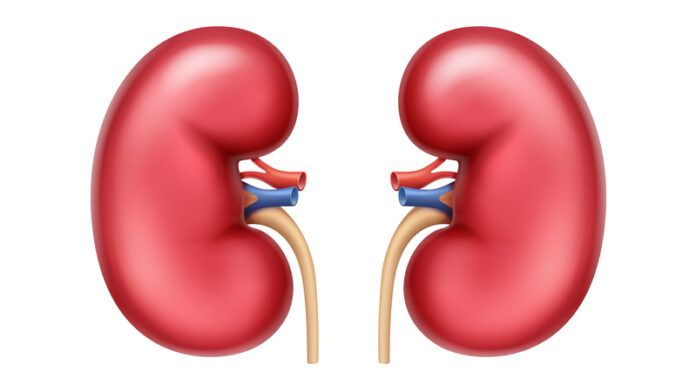The kidneys, a pair of bean-shaped organs located on either side of the spine, play a crucial role in maintaining the body’s overall health and well-being.
These remarkable organs perform essential functions, including filtering waste and toxins from the blood, regulating fluid balance, controlling blood pressure, and producing hormones that stimulate red blood cell production.
Dr. Oketcho Sam said understanding the significance of kidneys and adopting healthy practises to preserve their function is paramount.
Oketcho says that the kidneys act as the body’s filtration system, removing waste and excess substances from the blood to form urine.
He said to support this process, it is vital to stay well-hydrated by drinking an adequate amount of water daily, and dehydration can burden the kidneys and hinder their ability to function optimally.
“Managing blood pressure is crucial to safeguarding kidney health. High blood pressure can damage the delicate blood vessels in the kidneys, leading to impaired filtration and potential kidney disease. Adopting a low-sodium diet, regular exercise, and stress reduction techniques can help maintain healthy blood pressure levels,” Oketcho added.
He notes that a balanced and nutritious diet can significantly impact kidney health.
“Limiting the intake of processed foods, saturated fats, and excessive protein can ease the workload on the kidneys. Instead, focusing on fruits, vegetables, whole grains, and lean proteins can provide essential nutrients while supporting kidney function,” said Oketcho.
Oketcho warned against excessive use of over-the-counter pain medications, such as nonsteroidal anti-inflammatory drugs (NSAIDs). Prolonged and unchecked use of these medications can harm the kidneys and contribute to chronic kidney disease.
“Regular exercise is another cornerstone of kidney health. Engaging in physical activity promotes cardiovascular health, which, in turn, benefits the kidneys. Exercise also helps to maintain a healthy body weight, reducing the risk of developing obesity-related kidney problems,” Oketcho added.
Dr. Nakalema Sharifa, a health consultant and nutrition specialist, insists that there is a need to adopt a healthy lifestyle, and this is the only way to keep our organs safe.
“Refraining from smoking and moderating alcohol consumption can contribute to healthier kidneys. Smoking impairs blood flow to the kidneys, and excessive alcohol consumption can lead to kidney damage,” Nakalema said.
“The kidneys play a vital role in maintaining the body’s internal balance and overall health. By adopting a healthy lifestyle that includes staying hydrated, managing blood pressure, following a balanced diet, avoiding excessive use of medications, exercising regularly, and steering clear of harmful habits, we can safeguard the health and longevity of these vital organs,” Nakalema added.
Remember, prevention is always better than cure; proactive care for our kidneys today can lead to a healthier future tomorrow.















